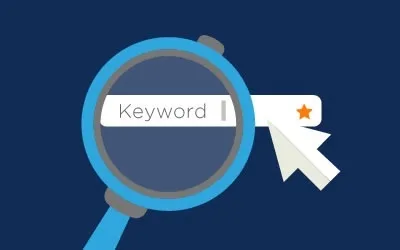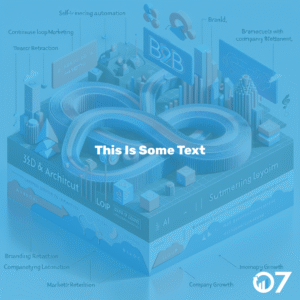What does an SEO Company do? It is sometimes a hard question to answer. To put it simply however, an SEO company helps your business gain organic website traffic to increase leads and increase website conversions.
An SEO company does this but utilising an array of techniques available. These include:
- Keyword Optimisation
- Technical SEO
- On-Page SEO
- Off-Page SEO
- Lead Generation
During this blog, we will explain what these techniques are, hopefully helping you answer – What does an SEO Company do?
An introduction into wHAT AN SEO COMPANY ACTUALLY DOES
You may have heard of SEO, but do you know what it is? SEO stands for Search Engine Optimisation.
Essentially this refers to methods that allow your website to appear on search results pages without paying to appear there. This is called organic search results. Organic search results are determined by the search engine that you are using. Each search engine will have its own set of algorithms on how it will rank content.
SEO applies techniques which cause the search engine to favour your website when the algorithms are crawling and indexing pages online.
Now that you have learnt the basics of what SEO is, lets dive deeper into some techniques you can deploy yourself.
Keyword Optimisation
Keyword optimisation is a major part of SEO. It is also intertwined with On-Page SEO, something we will discuss later.
Keyword optimisation is the practice of using words and phrases that would be put into a Search Engine throughout a website to help the search engine algorithms rank a site. The keywords can be a single word or a phrase.
Two important types of keywords to take into consideration are:
- Head Keywords – Single broad term
- Longtail Keywords – Specific longer phrase of words
Selecting your Keywords
When implementing keyword optimisation an SEO Company will follow a set of processes to help keep the strategy on track with the missions of the business.
The process they will follow is seen below:
Step 1: Brainstorm
Firstly, they will have a brainstorm session around what sort of keyword ideas they think will mirror the mission of the business. This is an open brainstorm with the goal of created a broad list of ideas that may be suitable. The list can be as large as possible – no idea is a bad idea at this point.
During this brainstorm, Topic Relevance should also be considered. Hubspot give an excellent explanation into what topic relevance is. Taking topic relevance into consideration at this stage will help with the overall content strategy. It will help increase page authority across your site and allow you link each piece of content; with other relevant content you have created. Not only does this help give you the persona of an industry expert, but it will increase user satisfaction across your site by supplying an answer to the queries they may need answering.
Step 2: Expand on the brainstorm
Now that they have brainstormed a list of broad ideas related to the company, they must next expand on this list.
Generally, the brainstorm list will contain head Keywords. These types of keywords are a good base to start from, however due to the broadness of the term and the simplicity of the word they are not completely suitable to build a campaign around.
Using tools including SEM Rush, MOZ and Google suggest, an SEO company can insert head keywords, to generate longtails keyword variations.
Google suggest – by simply entering a keyword into googles home page and not pressing search, there will be suggestions that are commonly searched on that topic. Good examples of these will be based around who, what, where, when and why. It is important to open google in an incognito window so that previous search history does not affect the results.
SEM RUSH/MOZ – Both SEM Rush and Moz will prefer similar functions, as well as many other tools in the industry. They have an excellent built in keyword explore function that will offer a list of suggestions relevant to your keyword.
Longtail keywords are longer phrases of head keywords. They often explain descriptive aspects and locations within a question. An example of a longtail keyword is: “SEO Company Cost Essex”.

Step 3: Keyword analysis
Once a list of longtail keywords has been generated, the next step is to analyse the longtail keywords generated. During the analysis there are important factors to be considered:
- The competitiveness of the keyword
- The commerciality of the keyword
- The search volume of the keyword
These factors are important as they will determine the success of ranking for a keyword.
The competitiveness of a keyword is vital as if there is high competition it will make it difficult to rank for. The lower the competitiveness the better.
The commerciality of the keyword is important as it will give an insight into what type of traffic the keyword will bring the website. If there is a high bid rate against the keyword this is generally a good sign. An SEO company will take into consideration the phrasing of the keyword.
SEO Company Cost Essex > SEO Company
Comparing the two keywords above, “SEO Company Cost Essex” has a much higher commercial intend. The traffic gained from this type of search will be targeted and specific around services that a business can offer and is much likelier to be a lead/conversion in the long run.
The search volume of the keyword is crucial as it gives an insight into the amount of traffic that could come to your website. A good base target is usually around 10 – 100. Although there will be keywords with higher volume, they will often be broad an bring unrelated traffic to your site.
Throughout this process it is great to use Google Ads Keyword Planner. It gives analysis of the keyword for google searches, meaning if that is the main search engine you are targeting, you will have real time insights into what you could achieve.
Optimising a website for Keywords
Once the keywords and topic relevance have been decided on, the website will be optimised using Keyword SEO.
This optimisation is done by:
Post’s title – Ensuring the title of blog/content contains the keyword and is not over 50 characters.
URL – Including the keyword in the URL and keeping it as short and simple as possible.
H1 Tag – Making sure the keyword is including in the headline. It is also essential to include it in H2, H3, H4 etc.
The first 100 words (or the first paragraph) of content – Including the chosen keyword as early in the text as possible.
Meta-title and meta-description tags – Including the keyword in the metadata to help when the search engine is crawling and indexing the pages.
Image file names and ALT tags – Including the keyword in the tags to help when the search engine is crawling and indexing the pages.
Add Semantic Keywords – Using similar works to the keyword to help the search engine identify the right topic and rank in the right industry/area.
Some of these techniques fall into other categories we will discuss further down the page; however, keyword optimisation is such a foundation of SEO that we thought it deserved a category of its own.
Technical SEO
Technical SEO services is about the functionality and development of the website itself. Tools like SEM Rush and MOZ will provide reports to help give you an insight into how a website or specific page is preforming.
Some essentials for technical SEO include:
- Website navigation and links
- Simple URL structure
- Page speed
- Dead links or broken redirects
- Delete Duplicate content
An SEO Audit will be performed to highlight the areas of the technical SEO not performing how they should be.
Website navigation and broken links can be harmful to your websites ranking if they are not working how they are designed to. This is as Google wants to give its users a reliable website to answer their search query. Duplicate Content can also confuse a search engine. It is recommended that anything duplicate be deleted or edited to fulfil a different purpose.
Another aspect of technical SEO includes Competitor Analysis.
SEM Rush can be used to analyse the performance of direct competitors. These should usually be within the same local area as the business. This analysis gives an insight into 2 key points: Keyword your competitors rank for and Site Authority of your competitors.
Understanding what your competitors rank for will allow relevant and easy to target keywords to be stollen. Potentially stealing some to-be customers from a competitor.
The page Authority gives and excellent insight into what level of authority you need the website to be at, to achieve ranking in your local area and targeted keywords.

On-Page SEO
On-page SEO is optimising pages that are a part of your own website. Keyword optimisation, which was covered in its own section, is a major part of on-page SEO.
There are methods not keyword related that can be utlised:
External links – Linking to external website to offer further explanation to what is being discussed.
Internal links – Linking to other pages on the same site, internally, to offer more content or similar pages.
Content’s length – Google likes long content. Making the content and long, detailed and explanatory as possible will work in positive favour for SEO.
Multimedia – Including images on the page helps break up the text and works positively when the site is being indexed.
The methods discussed above can be deployed throughout the On-Page optimisation. We thought it would be good to highlight some of the broader methods that the SEO company will use when putting this into practice:
- Content Creation
- Historical Optimisation
- Featured Snippet
So, what does an SEO agency do when using…
Content creation
Content creation and writing blogs is an excellent way on including keywords onto pages on a website. This focuses on producing new pieces of information that you can publish on the website. It offers a platform for content written specifically at a targeted demographic.

When creating content, they will take into consideration the style of the content being produced. When trying to rank, it is not good to “try to reinvent the wheel”. If a style of content is performing well, replicate it. This is because Google’s algorithm ranks that style of content highly and will therefore look for similar pieces when crawling and indexing.
Historical Optimisation
Historical optimisation is like content creation. It focuses on taking old content and reworking it in favour of keywords now being targeted. This is an excellent technique as it cuts down the amount of time spent on writing new content – which can be a long, time consuming activity.
It also means that old pages on your site will become relevant and not harm your technical SEO rating. Google can punish a site if it has dormant, poor performing pages.
Google also likes information that is new and relevant. Updating an old blog, including the publish date, will let Google know it is new information, meaning it should be relevant for people searching that term.
Featured Snippet
A Featured Snippet is specific type of on-page optimisation. Google introduced a “featured answer” on the first page of results. Google has a featured snippet to try and answer a query without needing to click into a result.
An SEO agency will try to replicate the style and content of a website or blog that currently has the featured snippet spot. As said before, they will not try to reinvent the wheel. To take the featured snippet spot you must replicate the style of the content already there. That may take the form of a number list with informative explanations below each one. It may be in the form of an infographic with a step-by step process explanation.
Off-Page SEO
Off-Page SEO is optimising your site by using techniques that are not directly on your website. This in turn will also increase the domain authority. The higher the domain authority the more trustworthy google will see a site.
But what does an SEO Company do when implementing off-page SEO? The key focus is around link building, or backlinking. There are a few techniques they will use throughout a backlinking strategy:

- Editorial, organic links
- Outreach
- Guest posting
- Profile links
- Competitive analysis
- Broken Backlink Building
- Press Requests
Let’s explore them in more detail:
Editorial, organic links – Producing good content will naturally gain organic links from other websites and blogs. Making sure you have the best quality content will help this process. It will also be something that will come over time, it is not a quick win.
Outreach – They will reach out to external websites with links to your content already created. The aim is to have them feature your link within their website or content.
Guest posting – Reaching out to publications online that allow for guest bloggers and content creators to publish work. The site will include author bios which allow an SEO Company to plug a website. It also gives a chance to link back to other content on the site, meaning you will have content published externally with links to the website.
Competitive analysis – Understanding where current competitors have backlinks will give provide easy, relevant targets to try and rank their content.
Broken Backlink Building – An SEO company will find broken links on a website and suggest that the author replaces the link with their relevant content. Ahrefs gives and excellent insight to this strategy.
Lead Generation
Lead Generation is the final part of the puzzle that will focus on throughout a campaign. Although it is not directly a SEO function, it is vital for the success of a business to make a gain on the increase of organic traffic to their website.
Their are two key techniques to convert the visitors in leads and hopefully then into customers.
Call-to-Actions
CTA’s are piece of advertising included on page of a website. The goal of a CTA is to attract a user into completing a form in return for a content offer or something similar.
A CTA should be eye catching, using a colour that contrasts against the rest of the website colour scheme. The CTA should also be clear and self-explanatory.
An SEO company will use CTA’s either at the end of content or at the side of a webpage.
An example of a CTA is included below. Click the link and fill out the form to experience a CTA workflow first hand…
{{cta(‘5c943856-8274-40a7-a805-a883bf59f33a’)}}
Pop-Up Forms
Pop-up Forms are like a CTA. They have the same goal of extracting information from a visitor, however they appear in the form of a pop up somewhere on the screen.
Both these techniques feature a form. The form will be designed by the SEO Company with the purpose of extracting as much relevant information as possible. This could include:
- Name
- Phone number
- Business size
- Turnover
- Budget
The information collected will be geared towards finding details that can be passed onto a sales team. The better qualified that visitor is the more leverage the sales team will have to work with, making it a qualified lead, with the potential of being a customer moving forward.
So, what does an SEO Company Do?
As detailed above an SEO company plays a vital role in gaining a business organic traffic to a website and then converting that traffic into tangible leads for the sales team moving forward.
From On-Page and Off page SEO to Technical SEO the methods available are almost endless. A successful SEO company will combine all these methods to ensure that when a search engine is ranking their website, they are in with the best possible chance of ranking on the first page.
We have created a digital marketing resource page, why not check it out? It is about all things digital marketing and inbound marketing. We have listed informational blogs about inbound marketing methodology, SEO, content creation and social media management.
If you liked the blog why not download our A-Z SEO Terms Guide…
For further insights and guidance, we invite you to explore our blog at 07hm.co.uk/blog. Here, you’ll find a wealth of information tailored to the needs and challenges of SMEs navigating the digital landscape. Additionally, if you have specific questions or need personalised advice, don’t hesitate to reach out to us via email at info@07hm.co.uk or telephone on 01702 410663.






